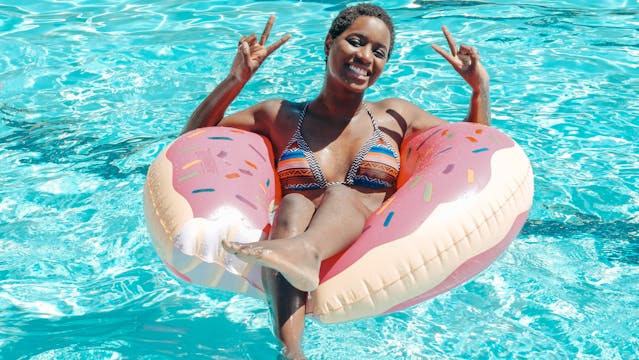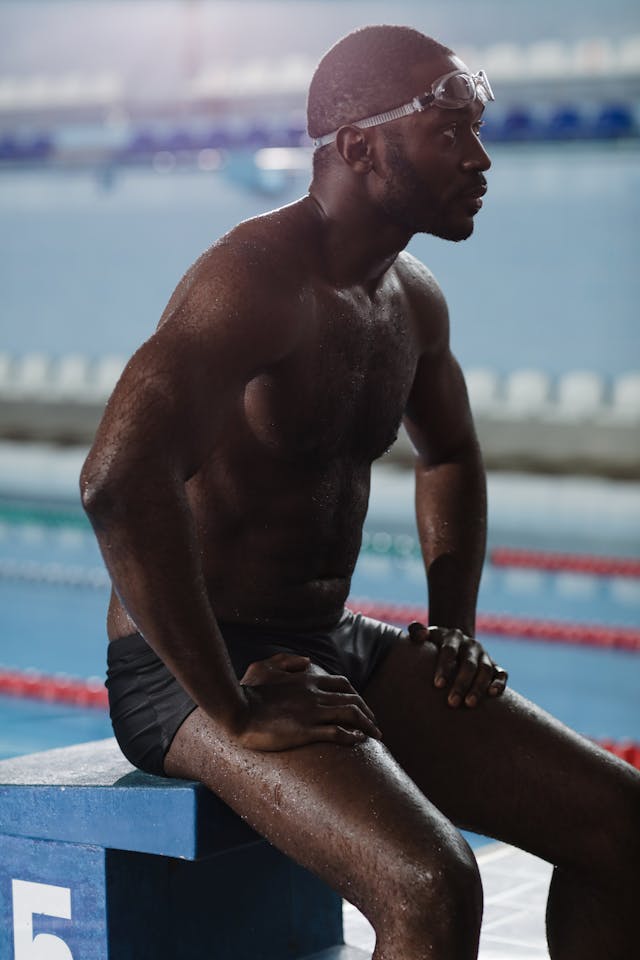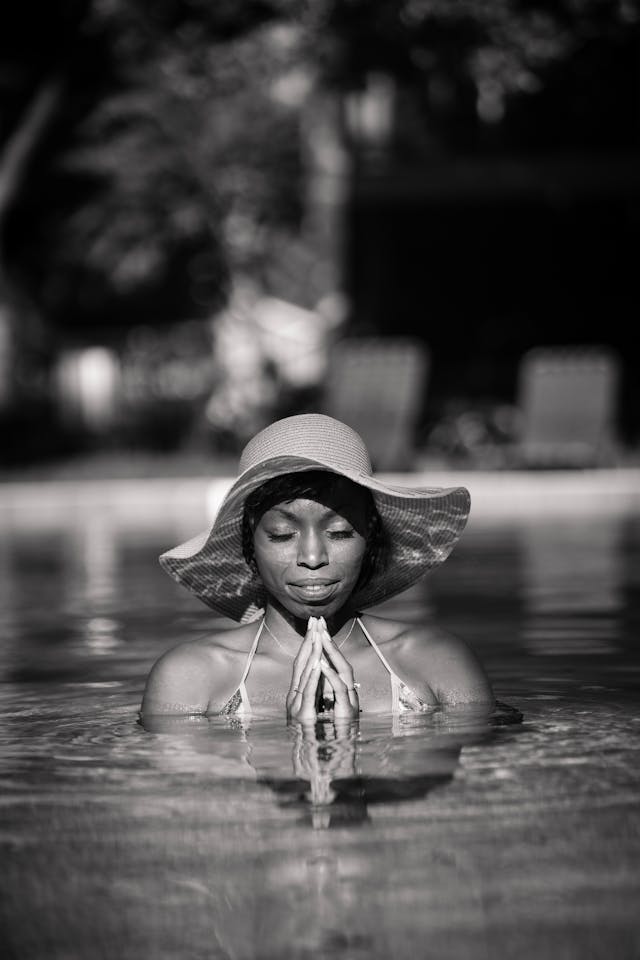Now, I can practically see some of you rolling your eyes, muttering, “Really?” or “Seriously?” Well, yes—hold your horses!
Here’s the thing: I’ve spent over 40 years trying to get the knack of swimming, and let me tell you, it hasn’t exactly been a splashy success. I’m not scared of water, mind you—it’s not like I’m running from the bath—but for some reason, I just can’t seem to nail the rhythm. And you know what? I’m not alone in this struggle. Plenty of people out there have a similar tale to tell, so I decided to dig a little deeper into why this might be.

What Could Be Holding Us Back?
1. Lack of Access to Pools
Let’s face it, unless you’re living in a tropical paradise or a country with endless indoor pools, access isn’t exactly easy. In warmer climates, pools are often reserved for those with a bit more cash to splash. Community pools? Sure, but they’re few and far between, and not always within a convenient distance. And for some, pools might as well be mythical creatures—just not a thing in their area.
2. Lessons Don’t Come Cheap
Even if you’re lucky enough to find a pool, you’ll likely need lessons. And here’s the rub—swimming lessons aren’t cheap. Plus, swimming schools can be hard to find, and there’s an increasing shortage of teachers, making the whole venture feel more elusive than a pot of gold.
3. Lack of Role Models in Your Circle
When it comes to picking up new skills, we often look to those around us for inspiration. If your family or friends aren’t swimmers or don’t prioritise learning, it can seem less important. For children, especially, the idea of learning to swim might not even register unless they see a peer diving in.
4. Body Type and Buoyancy (Apparently)
Here’s an interesting tidbit: it’s said that body composition might play a role. Black people often have leaner, denser bodies, while others, like White & Asian folks, tend to have a higher fat content, which makes floating easier. Now, I say “apparently” because this is still up for debate, but it’s worth considering as a possible factor.
5. Safety Concerns and Drowning Statistics
Sadly, drowning rates are disproportionately high in Black communities, which understandably fosters a fear of water. This fear can lead people to avoid swimming altogether, creating a vicious cycle. Even for those who do venture into water occasionally, a lack of skills can leave them vulnerable in emergencies.
6. Old-Fashioned Myths
Ah, yes—the myths. There’s no shortage of outdated notions floating around about Black people and swimming. But let’s bust that right now with some fantastic examples of Black swimmers who’ve made waves in the sport!
24 Notable Black Swimmers
- Pauline Jackson –
The first black woman to pioneer in open water marathons in the 1920’s.
- Lawrence Sapp –
A prominent American Paralympic swimmer known for his exceptional achievements in the pool.
- Enith Brigitha –
An Arubana trailblazing figure in the world of swimming, becoming the first swimmer from the Caribbean to compete in the Olympic Games in 1972.
- Reece Whitley –
He was named the Sports Illustrated Sportskid of the Year in 2015, highlighting his status as a rising star in swimming.
- Kevin Burns –
The first black British former swimmer to compete in the 1976 Olympics.
- Fred Evans –
The first Black swimmer to win a collegiate swimming championship.
- Chris Silva –
The first Black swimmer to represent the United States in international competition.
- Anthony Nesty –
An Olympic gold medallist in the 100-metre butterfly event in 1988 from Suriname.
- Alice Dearing –
A British Co-founder of the Black Swimming Association in 2020 and specialist in open water events.
- Cullen Jones –
A four-time Olympic medalist and the first African American swimmer to hold a world record.
- Alia Atkinson –
A Jamaican five-time Olympian, whose international competition career spanned 19 years

- Natalie Hinds –
An American woman who made her debut at 27 years of age, going on to win a bronze medal in the 4×100 meter freestyle relay at the 2020 Olympics.
- Lia Neal –
A 2-time freestyle American Olympian who went on to win a Bronze and Silver in 4×100-meter freestyle relay.
- Simone Manuel –
The first American Female Olympian to win a Gold in Swimming.
- Tice Davids (Underground Railroad) –
In 1831 he was a Kentucky enslaved man that made a break for the free state of Ohio by swimming across the Ohio River.
- Jamal Hall –
An American Paralympic swimmer.
- David Curtiss –
An American professional swimmer.
- Anthony Ervin –
an Olympic Gold medalist as well as the oldest individual Olympic gold medal winner in swimming at the age of 35.
- Maritza Correia McClendon –
A Former Olympian and the first Puerto Rican of African descent to be a member of the U.S. Olympic swimming team.
- Sybil Smith –
an American former collegiate swimmer.
- Sabir Mohamed –
A retired American swimmer who broke 10 American records and earned 22 international medals throughout his career.
- Alison Terry –
Former USA National Team & Olympic Trial competitor, and now specialises in coaching people living with physical disabilities to swim more efficiently.
- Charles Chapman –
who in 1981 became the first Black swimmer to successfully cross the English channel, and in 1988 set a record for swimming twice around New York’s Manhattan Harbor, a 28.5 mile marathon.
- Jim Ellis (Coach) –
An American swim coach who founded the PDR swim team just outside Philadelphia, Pennsylvania, as one of the few predominantly Black swim teams largely for intercity youth.
Conclusion
It’s time we challenge these barriers and make swimming more accessible and inclusive. Whether it’s pushing for community resources, debunking myths, or simply encouraging someone to take the plunge, we can all play a part in turning the tide. So, what’s stopping you?



